How do birds survive the winter?
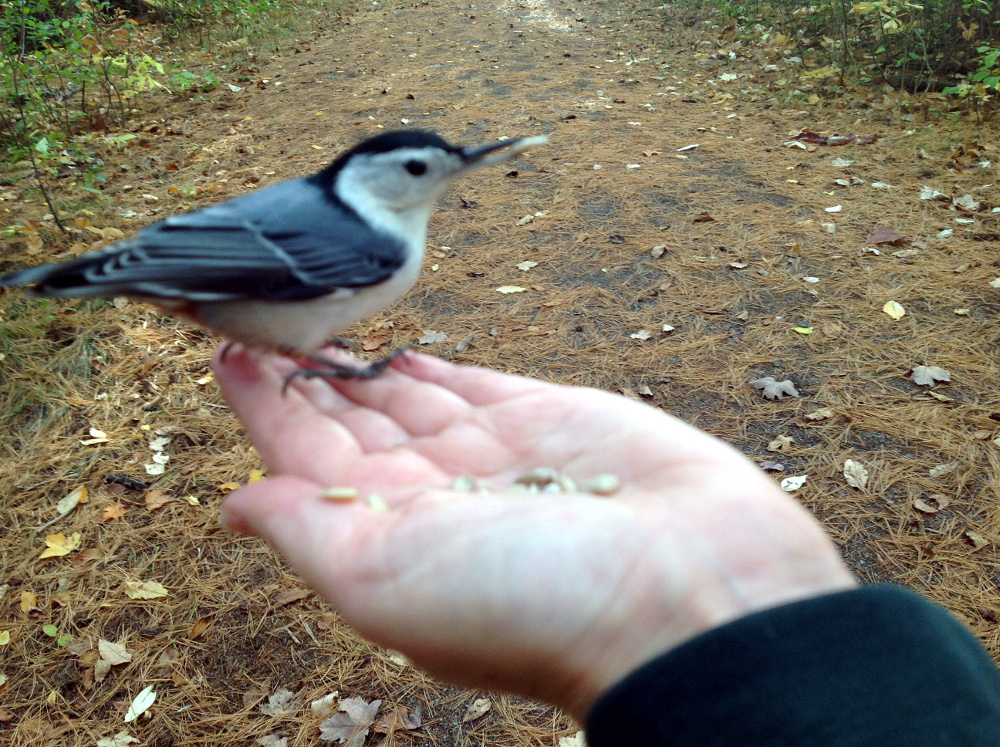
At this time of year, walking the trails in my area, you're bound to see some of these little guys. This one is a white-breasted nuthatch. In the autumn they form mixed flocks with the chickadees and that helps all of them with winter foraging; when one spots a food source, the others join in. That's how we ended up with ten little birds landing and snatching seed as fast as they could.
As the temperatures have dipped for us lately, we started wondering how creatures so small survive the cold. After all, they're warm-blooded, like us, with a body temperature that stays a pretty constant 105 °F (41 C). If they don't fly south, how do they survive?
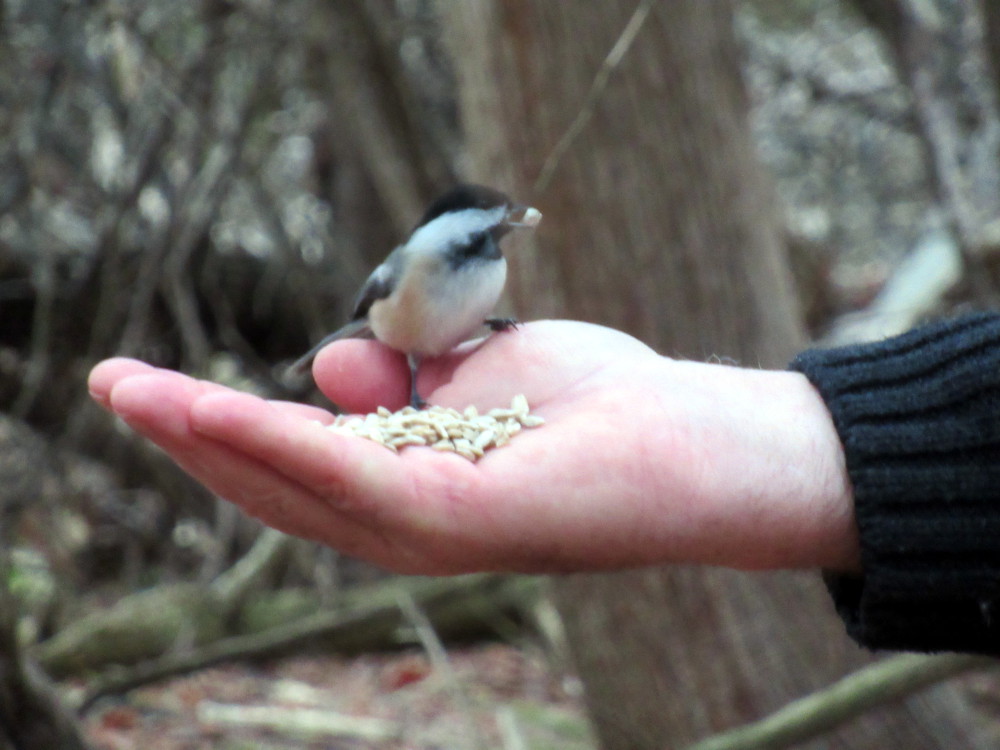
As it turns out, in colder weather they employ many strategies, some similar to what we might do and others that have evolved specifically for their survival. These birds, above and below, are the tough little black-capped chickadees. (Incidentally, the collective noun for chickadees is a "banditry," probably referring to their little black bandit masks.)
Some birds grow more downy feathers for winter. Others, puff out their feathers to increase the insulation around their bodies, like us wearing a jacket. They can huddle together to share warmth and they tuck their heads in to decrease surface area. Thick brush and crevasses provide shelter.
Many birds spend a majority of their days finding fatty food sources and putting on fat for warmth and energy, but not the little ones. Too much weight and they wouldn't be able to fly!
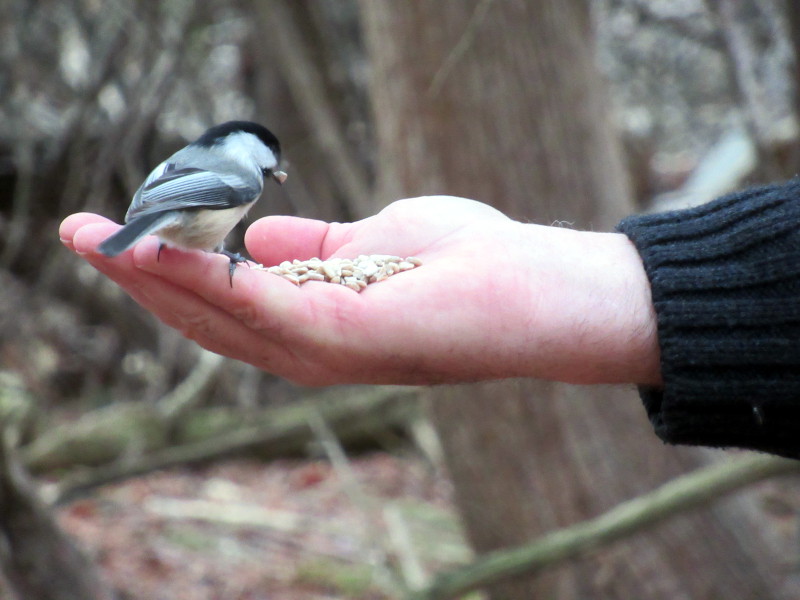
The chickadees have some ingenious features. They can shiver by activating opposing muscle groups, and unlike with mammals, there isn't a visible shake and it's better for heat retention, but they may have to feed all the next day to replenish the fat lost through shivering.
Their feet are maintained at a temperature near freezing, much cooler than their core, and a continuous flow of blood to their feet with arteries and veins near each other, allows the veins to reclaim heat that might have been lost.
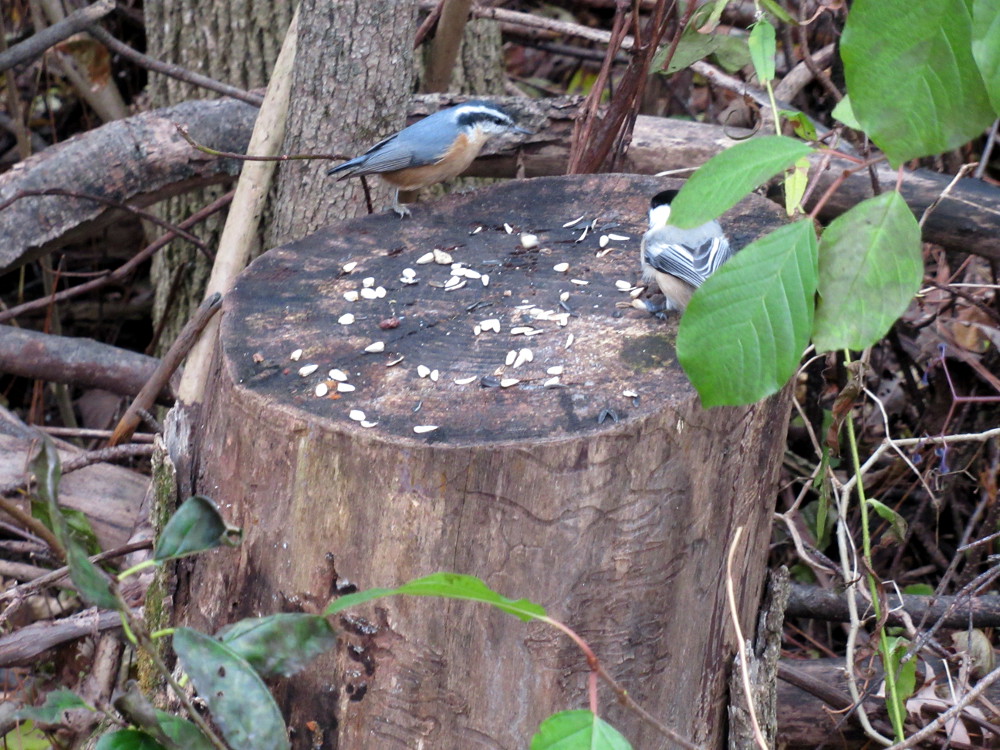
At night, there are no calories coming in to maintain warmth. Chickadees and other small birds can lower their body temperatures in a process called regulated hypothermia. They may reduce their body temperature by as much as 22 °F (-5.6 C) from their daytime temperature, and stay still to save energy.
On the left, above, a red-breasted nuthatch shares a meal with a chickadee.
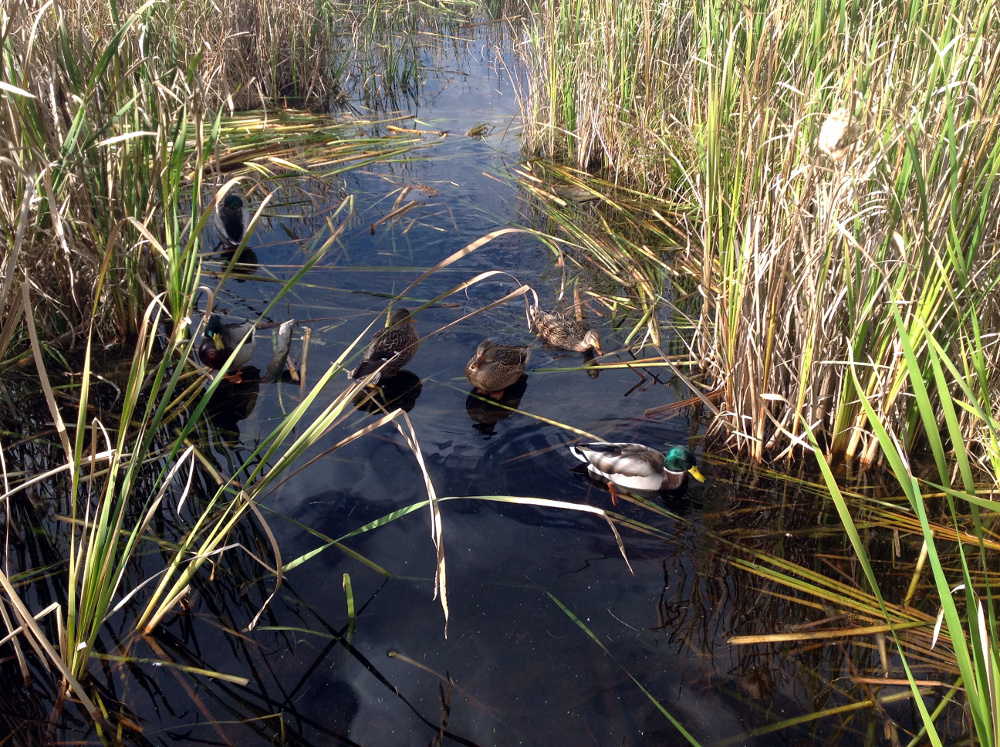
Ducks, like these mallards, are an example of a bird that keeps warm blood circulating around their internal organs while having their feet in cold water or standing on ice. As long as they have an open water source, food and some shelter, they can stay warm through the winter. Most still fly south.
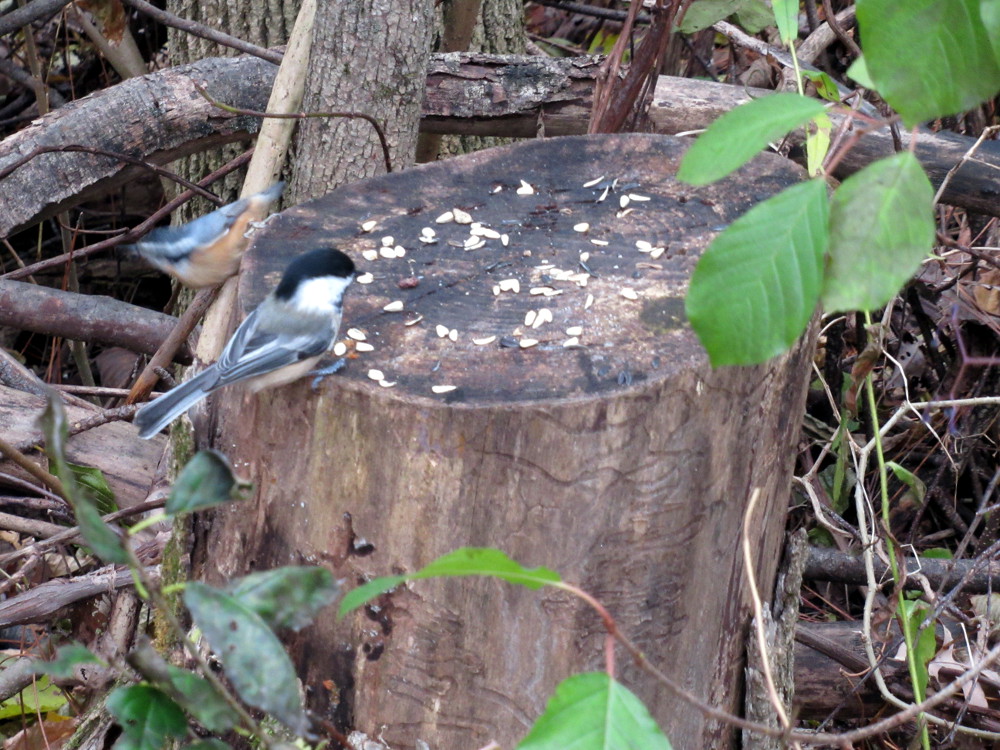
It's important that birds find food through the winter and we can help by putting out bird feeders for them.
BIG NOTE: Last winter I wrote this post and I tagged it wrong, not putting it in Feathered Friends and it didn't get the attention it deserved. If it looks familiar, my apologies. And I would love it if someone briefly explained to me in the comments how to cross post, so I would know how in the future.
References
Audobon: How Do Birds Cope With Cold in Winter?
The Cornell Lab: How Do Birds Survive the Winter
Images
Most photos from my Canon SX620 HS on the Old Quarry trail and photos #1 and #5 from my iPad on the Sarsparilla trail in the greenbelt, Ottawa, Canada.

Enjoy!
@kansuze
Link to the previous post
Reposting previous posts or parts of them without significant additional original content/changes is considered fraud and exploitation of the "Hive Reward Pool".
Publishing such content may result in the account being Blacklisted.
Please refrain from copying and pasting previous posts going forward.
If you believe this comment is in error, please contact us in #appeals in Discord.
I was upfront about it but didn't know the rule. Thank you for letting me know.
Beautiful birds and photos!
Interesting post, learned something new!
Lovly birds
We are happy to read these interesting and useful informations in the community ;-)
If you want to cross post, you hit the 3 little dots under the post and select cross-post, then the post will be shared in the community but you won't get any reward, as far as I know,
so my advice is to post first in the right community, where interested-in-the-subject-people will read and upvote your post, and only after cross-post it elsewhere.....
Of course you are not always aware of all the communities available, but you can always cross-post an old post of yours, and as written above, the rewards will be declined ;-)
Hope that helps
Thank you! I don't expect to use it often but sometimes it's tough to tell which community to post in. I wouldn't use it on an old post -- makes no sense.
Would have made sense in this case though...you wouldn't have been called to order by Hivewatchers ;-)
I wanted to do it as soon as I made the mistake a year ago but didn't know how. Funny.
Dear @kansuze, We regret to inform you that your post received a -86% downvote.
@soonlambo burnt 70 HELIOS & a downvote was issued on behalf of the user.
For more information please contact us : HELIOS Token Discord Channel